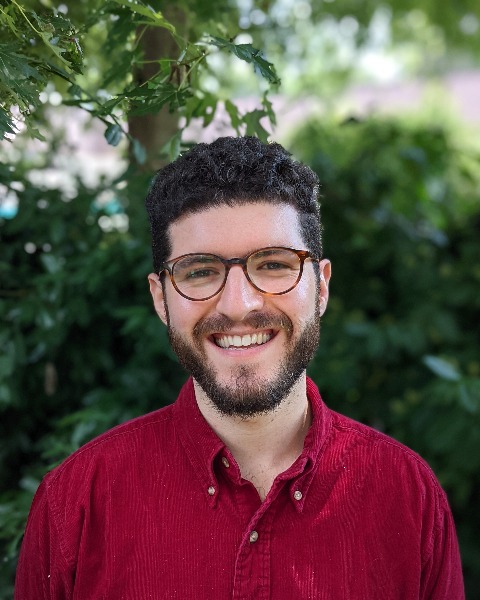Organized Oral Session
OOS 4 - Toward Sustainable and Just Cities: Developing and Applying a Mechanistic Understanding of Urban Ecosystems
-

Daniel Forrest, B.S.
PhD student
University of British Columbia
Vancouver, British Columbia, Canada -
AA
Aaron Aguirre
Graduate Research Assistant
University of British Columbia, British Columbia, Canada -
KC
Kai Chan
Professor and Canada Research Chair
IRES, University of British Columbia
Vancouver, British Columbia, Canada
Organizer(s)
Co-Organizer(s)
Though largely unrecognized, the growth of cities – which host over half the world’s human population – is now a leading cause of biodiversity loss, on par with agriculture and forestry. In converting green spaces to built environments and contributing to biological homogenization, urbanization processes also contribute to the loss of nature’s benefits to people in cities. Urban landscapes have the potential to foster important - and frequent - human-nature connections close to home. However, the continued loss of urban green spaces and other vegetation reduces cities’ potential for growing mutually beneficial human-nature relationships. Moreover, the green spaces that remain or are being restored are generally less accessible to poor and marginalized communities. The field of urban ecology has grown rapidly over the last two decades as a response to the above, with many ecologists seeking to inform urban decision-making to make cities more sustainable and just. However, urban ecological research must grow further to fulfill this need.
First, the processes and interactions which structure ecological communities and determine biodiversity in human-dominated environments are only beginning to be understood. Though ecologists have long recognized the importance of indirect effects (e.g., the impact of one entity on another that is mediated or transmitted by a third) in structuring communities in wild spaces, most studies in urban areas still focus on direct effects.
Second, we are only beginning to produce information that is relevant, accessible, and/or useful to urban decision-makers. Research co-design and knowledge co-production have emerged as a means to unify the work and impact of researchers and decision-makers, but both are still rarely practiced by urban ecologists.
Lastly, creating sustainable and just cities necessitates the involvement of people affected by these decisions and other forms of knowledge (working, cultural, Indigenous, etc.) throughout the research and decision-making processes.
Addressing these gaps requires an emerging urban ecological research agenda that: 1) uncovers the mechanisms, including direct and indirect effects, determining community composition and biodiversity loss in urban ecosystems, and 2) integrates science and practice through close collaborations between scientists, practitioners, and affected peoples to better inform urban decision-making and transform cities into havens for humans and nature. In this session, we will bring together scientists and practitioners to present work that contributes to this agenda, including research co-design, knowledge co-production, and mechanistic urban ecology.
Presentations:
-
1:30 PM - 1:45 PM PDTThe hidden ecology of urban garbage: Food waste may indirectly simplify urban bird communities
Presenting Author: Daniel L. Forrest, B.S. – University of British Columbia
Co-author: Harold N. Eyster, PhD – University of Vermont
Co-author: Matthew G. E. Mitchell, Ph.D. – University of British Columbia
Co-author: Kai M. A. Chan – IRES, University of British Columbia
-
1:45 PM - 2:00 PM PDTSocial-ecological factors facilitating coexistence among wildlife and people in a desert city
Presenting Author: Jeffrey D. Haight, M.S. – Arizona State University
Co-author: Kelli L. Larson – Arizona State University
Co-author: Jeffrey A. Brown – La Salle University
Co-author: Sharon J. Hall – Arizona State University
Co-author: Jesse S. Lewis – Arizona State University
-
2:00 PM - 2:15 PM PDTIntegrating data on human values, birds, trees, and climate to advance urban socio-ecological justice
Presenting Author: Harold N. Eyster, PhD – University of Vermont
Co-author: Rachelle K. Gould – University of Vermont
Co-author: Daniel L. Forrest, B.S. – University of British Columbia
Co-author: Kai M. A. Chan – IRES, University of British Columbia
Co-author: Brian Beckage – University of Vermont
-
2:15 PM - 2:30 PM PDTEquity in access to positive human-bird interactions in urban gardens in San Francisco
Presenting Author: Kelley E. Langhans – Stanford University
Co-author: Alejandra Echeverri, Ph.D. – Stanford University
Co-author: Meggie Callahan – University of Washington
Co-author: Oliver Nguyen – Department of Biology, Stanford University
Co-author: Maya Xu – Stanford University
Co-author: Nicole Ardoin – Stanford University
Co-author: Gretchen C. Daily – Stanford University
-
2:30 PM - 2:45 PM PDTGreening Equitably Through Positive Transformations: addressing legacies of injustice with community engaged research to action
Presenting Author: Zbigniew Grabowski, PhD – University of Connecticut
Co-author: Timon McPhearson – Urban Systems Lab, The New School
Co-author: Steward T.A. Pickett, n/a – Cary Institute of Ecosystem Studies
